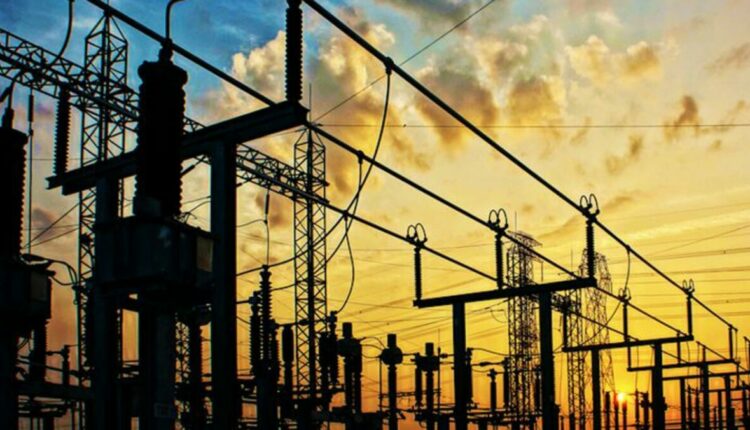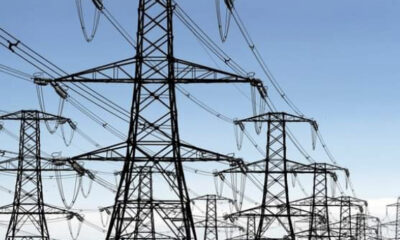News
NEC sets up panel to address national grid collapse
Published
9 months agoon

The National Economic Council, NEC, on Thursday reinforced the implementation of the national electrification strategy in a bid to end the collapse of the nation’s power grid.
This is just as Vice President Kashim Shettima, who is chairman of NEC, told the council that access to energy was a fundamental right and not a privilege because electricity remained the oxygen of economic growth.
Accordingly, the council has constituted a committee on national electrification to help address the challenges in the power sector.
He said following a presentation by the managing director of Rural Electrification Agency, REA, NEC observed that Nigeria needed a reformed and diversified electricity system, noting that by empowering states, accessibility and affordability of electricity could be enabled, ensuring that all regions effectively met their specific energy needs.
Members of the committee include Governors Dikko Radda of Katsina, Inuwa Yahaya of Gombe, Ademola Adeleke of Osun, Hope Uzodimma of Imo, and Caleb Mutfwang of Plateau.
Others are Ministers of Finance, Mr Wale Edun; Budget and Economic Planning, Sen. Atiku Bagudu; Power, Mr Adebayo Adelabu; Special Adviser to the President on NEC and Climate Change; Special Adviser to the President on Power; Managing Director, Rural Electrification Agency, REA, and Managing Director, Niger Delta Power Holding Company.
Earlier in his address at the council meeting, Vice President Shettima maintained that access to energy was a fundamental right and not a privilege because electricity was the oxygen of economic growth.
He outlined issues before the council that required urgent attention to include energy infrastructure, human capital development, creative industries, fiscal strategy, industrial innovation, and long-term development planning, describing them as foundational to the transformation Nigeria needed.
Shettima explained that it was for this that experts and stakeholders from some of the critical sectors had been invited to share their insights and contributions.
He stated: “The past few months of collapses in our national power grid compelled us to reinforce the pace with which we are adopting and implementing the National Electrification Strategy. Energy access is a fundamental right, not a privilege. It is the oxygen of economic growth.
“Our blueprints must, therefore, strive to expand access, empower rural communities, and drive productivity, especially for MSMEs. I hope our discussions today will inspire solutions to light up homes, power businesses, and fuel Nigeria’s industrial future.
“Whatever path we agree upon, it is clear that a private-sector-led distributed renewable energy generation approach is essential to increasing electricity access for households and small enterprises alike.”
He also urged the council to take Nigeria’s creative industry seriously, saying it presented an avenue to redefine the nation’s economic trajectory.
According to him, “new technologies have not only amplified the global appeal of our arts, crafts, and culture but also opened up revenue streams and job opportunities for Nigerians.
“Our music, films, art, and cultural heritage are not just global symbols of Nigeria’s soft power but also vital engines of economic growth. We cannot afford to relegate the promise of turning creativity into wealth, empowering our youth, and positioning Nigeria as a hub of innovation and cultural excellence.’’
Other highlights of the meeting included a presentation by the Accountant General of the Federation on account balances as at November 20, 2024.
It said: Excess Crude Account – $473,754.57, Stabilization Account- N33,324,135,076.39, while Natural Resources Account stood at N26,847,747,874.93.’’
Also briefing, the governor of Imo State, Senator Hope Uzodimma, said NEC received a presentation on special agro-industrial processing zones by the SAPZs national programme coordinator, Dr Kabir Yusuf.
According to him, the programme is currently being implemented at varying stages in eight states of the federation, including Kano, Kaduna, Kwara, Oyo, Ogun, Imo, Cross River, and FCT, under phase 1 of the Special Agro-Industrial Processing Zones.
Under the second phase, a total of 24 states were visited by the selection team to assess their readiness for the programme.
The implementation model is a government and private sector-led (SPV) arrangement, hence discussions are underway to partner with private developers & co-financiers on the project estimated to cost about $1 billion.
The SAPZ coordinating office is working out a multi-tranche financing arrangement to accommodate additional states over the next three years, as it is structured in three tranches.
The council urged states to key into the programme, noting that the SAPZ would be a game-changer, if states gave it the necessary support and consideration.

Trust Governor Zulum, He means well for Borno

Misconstrued facts on Gov. Zulum’s golden marks against insecurity, a Rejoinder

CVR: Kano Targets 10m Registered Voters Ahead Of 2027

Kano-based female journalist gets African media network appointment

JUST IN: FG approves increase in electricity tariff








